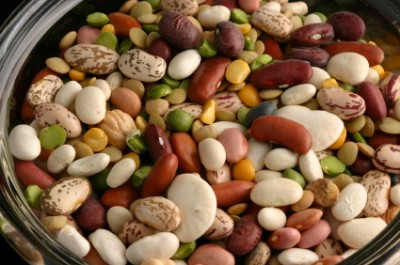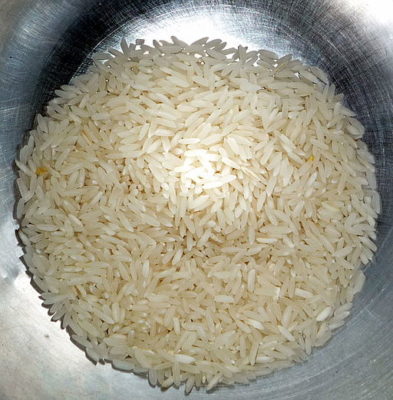Preserving and stockpiling food is a cornerstone of homesteaders and off-gridders. Not all foods, though, preserve well, no matter what you do to them. Some are just bound and determined to deteriorate with time. But there are enough foods that will last and last extremely well, if we take the time to select and pack them in the right manner.
Part of the problem is understanding what enemies are out there – the ones that want to destroy our foods. Once we know that, we can prevent them from having access to our food stocks and thereby can prolong the life of those stocks. The enemies I’m referring to include:
- Critters – Rodents, insects and especially bacteria, all of whom want to eat our food before we can get to it. The best solution is a combination of killing any that might be in the food (especially for bacteria and insect eggs), while making sure that more critters can’t get in.
- Heat – Heat, even minimal, will cause many foods to start breaking down. Keeping foods in a cool area helps preservation.
- Oxygen – Some nutrients in our foods will oxidize when given the chance and enough time. Ensuring that the foods are packed without oxygen or with oxygen absorbers is the best protection against oxidation.
- Light – Yes, light can damage foods as well, although mostly it is by discoloring it. Light also has an effect on changing the chemical composition of some vitamins. That cool storage place needs to be dark as well.
There is some good news in all of this. And that is that ancient people were successful in storing foods for very long periods of time. Many ancient tombs more than 1,000 years old have been opened to find useable grains and other foodstuffs.
The World’s Healthiest Survival Food — And It Stores For YEARS and YEARS!
Foods That Naturally Keep Forever
There are some foods that just naturally keep pretty much forever. Those are always a good starting point if you want to make sure that your grandkids get to eat your survival stockpile.
 1. Dried beans – A great staple and a source of protein, beans are a cornerstone food for survival. It is important to keep insects out of them, but with that one precaution, they are unlikely to be bothered by anything else.
1. Dried beans – A great staple and a source of protein, beans are a cornerstone food for survival. It is important to keep insects out of them, but with that one precaution, they are unlikely to be bothered by anything else.
2. Coffee & tea – While coffee and tea will both lose some of their flavor with time, they are still usable after years of storage. Coffee does best if left unground until use. Tea stores best for long-term if it is loose leaf tea and not bagged tea. The more airtight the container, the better it will preserve the flavor.
3. Dried corn – This is probably the most common preserved food of ancient people and the most common to find in their tombs. Dry corn is pretty much impervious to attacks by bacteria and insects will generally leave it alone. But rodents love it, so you have to have it in a thick enough container to keep them out.
4. Cornstarch – As long as it doesn’t get any moisture in it, cornstarch will last forever. Keep it in a cool, dry area.
5. Corn syrup – High in sugar, corn syrup will last for many years. Like pretty much all liquids, it needs to be kept in a well-sealed container to prevent evaporation. Believe it or not, there is organic corn syrup.
6. Honey – Honey stores indefinitely, as long as it’s stored in a sealed container. Keep it in a cool, dark place. If it crystallizes, simply heat it up to melt it again.
7. 100 percent pure maple syrup – Left in a sealed container, pure maple syrup holds up extremely well. If it should get mold on it, simply skim off the mold, boil the syrup and re-can it.
8. Powdered milk – Yes, that powdered milk that nobody likes to drink is one of the longest lasting foods around. While it may not be our favorite now, when we don’t have any other milk to drink we may find that we like it.
 9. White rice – White rice will last a good 30 years if stored in a container without any air in it. Pack it well with an oxygen absorber and you can be sure that you’ll be able to eat it later… much later.
9. White rice – White rice will last a good 30 years if stored in a container without any air in it. Pack it well with an oxygen absorber and you can be sure that you’ll be able to eat it later… much later.
10. Salt – Must be kept free of moisture. Salt is a natural preservative, so it makes sense that it will last well too.
11. Soy sauce – Due to its high salt content, it is virtually impossible for bacteria to grow in soy sauce. Just make sure that the container stays sealed so that it can’t evaporate.
12. Sugar – Like salt, sugar is another natural preservative. You will have to protect it from bugs though, who are attracted to it. But if the bugs don’t get to it, it lasts forever.
13. Pure vanilla extract – Since vanilla extract is alcohol based, it lasts forever. About the only difference you might notice is a slightly stronger flavor, caused by evaporation of the alcohol.
14. Vinegar – Vinegar is another natural preservative, due to its high acid content. It is often used in making pickled foods. As such, it keeps forever. If a film develops over the surface, don’t worry, that is merely the vinegar “mother,” which is the bacteria used to create more vinegar. You can filter it out or use it to make a fresh batch.
15. Unground wheat – Wheat flour doesn’t have a very long shelf life and can attract insects. But unground wheat will easily keep for 20 years or longer. Wheat has even been found in ancient tombs, left there for the dead king’s spirit to eat.
Packaging Makes the Difference
While these foods naturally last for an incredibly long time, packaging is an issue. You probably noticed that I mentioned special packaging and storage requirements for just about everything on the list. Ultimately, the packaging you use – more than anything else – will determine how long your foods will last.
Canned foods are among the very few foods that you can buy that are truly packaged for long-term storage. While they all carry an expiration date on them, those dates are based upon worst-case situations. Nobody really knows how long properly canned and stored foods will last. As long as the can’s integrity is intact, you can assume that the food within is still safe to eat.
Make “Off-The-Grid” Super Foods Secretly In Your Home
This goes for foods that we can ourselves, too. It doesn’t matter if the food has been professionally canned in a cannery or canned in mason jars in your kitchen, the results are the same.
There is one exception I have found to this. Foodstuffs that have been canned in plastic jars, rather than glass ones, don’t seem to keep as well. Apparently, some small amount of oxygen can make it through either the plastic of the jar itself or the lid. In either case, that causes the food inside to start oxidizing.
There is some evidence that certain canned foods will lose nutritional value over time. This is specifically referring to the vitamins in the food. However, that doesn’t mean that these foods no longer have value. Canned vegetables and fruits are high in carbohydrates, the most important survival micronutrient. Losing some quantity of micronutrients doesn’t ruin their usability.
Considering that dried grains have lasted several centuries when packed away in clay vessels, I think we can safely say that we too can store those grains for about as long as we want. The only problem is keeping them protected from insects and rodents. If we do that, then we can count on them literally forever.
What foods would you add to this list? Share your suggestions in the section below:
Discover The Trick To Saving Thousands At The Grocery Store. Read More Here.
 Off The Grid News Better Ideas For Off The Grid Living
Off The Grid News Better Ideas For Off The Grid Living




